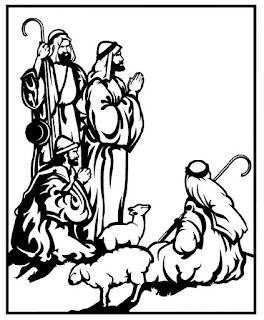Certainly, we live
in a fallen world where sin and death pervade every aspect of life.
Nevertheless, we need to comprehend that world of sin and death as taught by
Scripture and not based upon our personal preferences of how the world should
work. I say this because I was reminded this week of a seminary professor who
wrote an article against biological evolution based upon his distaste of a
scene from a TV nature show which depicted a pig being eaten by a python. This
professor asked the question: Is this what God intended for his creation?
Naturally, his answer was in the negative. I, however, decided to dip into the
Scriptures and determine how God views the animal kingdom. I was drawn to the
following verses about God from Psalm 104:20-21:
“You make darkness, and it is night: wherein all the beasts of the
forest do creep forth. The young lions roar after
their prey, and seek their meat from God.”
I interpret from
these verses that God created animals to eat and be eaten. Whether we like it
or not, God is perfectly content for the animal kingdom to struggle their lives
away hunting, evading, searching, defending, devouring, being eating, and
dying.
Think of it this
way: why did God give some animals claws and jaws to eat meat? Why did God give
some animals the ability to hide and evade being caught long enough to
reproduce? It’s not from Adam’s sin that skunks spray and anteaters have long
tongues. God created them that way. I’m reminded of that scene in the film
Master and Commander where the young shipman examines a stick bug (who uses his
appearances to hide from predators) and asks the physician/naturalist whether
God made them that way.
Indeed, God (and
his Son) seems to have no problem with the death of animals (Genesis 3:21; John
21:9). Nevertheless, God does care for animals (Matthew 6:26; Numbers 23:27-30).
This is why we
need the Scriptures to help navigate our understanding of truth and creation.
Without it, we may find ourselves preferring a reality of our own liking and
not one that coheres to reality.
 "Thinking Eternally, Acting Locally." - Neal August
"Thinking Eternally, Acting Locally." - Neal August










